Hyundai Kona vs Vauxhall Zafira Life – Differences & prices compared
Compare performance, boot space, consumption and price in one view.
Find out now: which car is the better choice for you – Hyundai Kona or Vauxhall Zafira Life?
The Hyundai Kona (SUV) comes with a Petrol, Full Hybrid or Electric engine and Manuel or Automatic transmission. In comparison, the Vauxhall Zafira Life (Bus) features a Electric or Diesel engine with Automatic transmission.
When it comes to boot capacity, the Hyundai Kona offers 466 L, while the Vauxhall Zafira Life provides 0 L – depending on how much space you need. If you’re looking for more power, decide whether the 218 HP of the Hyundai Kona or the 177 HP of the Vauxhall Zafira Life suits your needs better.
In terms of consumption, the values are 14.60 kWh4.50 L per 100 km for the Hyundai Kona, and 24.60 kWh7.50 L for the Vauxhall Zafira Life.
Price-wise, the Hyundai Kona starts at 23100 £, while the Vauxhall Zafira Life is available from 34200 £. Compare all the details and find out which model fits your lifestyle best!
Hyundai Kona
The Hyundai Kona blends a bold design with a versatile interior, making it a standout choice in the compact SUV market. Its crisp handling and responsive steering provide an engaging driving experience, whether in the city or on the open road. The vehicle also offers a range of features designed to enhance comfort and connectivity, ensuring a pleasurable journey for both driver and passengers.
details @ hyundai.news
@ hyundai.news
 @ hyundai.news
@ hyundai.news
 @ hyundai.news
@ hyundai.news
 @ hyundai.news
@ hyundai.news
Vauxhall Zafira Life
The Opel Zafira Life offers a versatile and comfortable driving experience, making it an ideal choice for families and group outings. Its spacious interior is thoughtfully designed, ensuring ample room for passengers and luggage alike. Modern features and a sleek exterior design give it a contemporary edge while maintaining practicality for everyday use.
details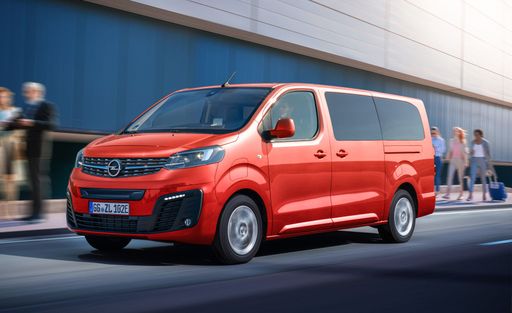 @ Stellantis
@ Stellantis
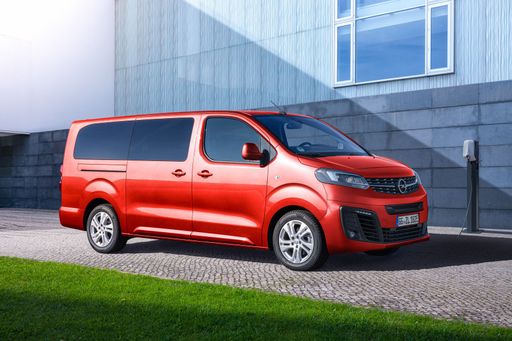 @ Stellantis
@ Stellantis
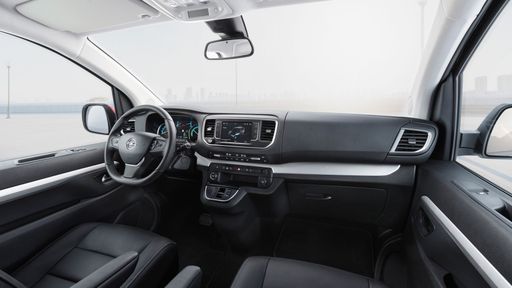 @ Stellantis
@ Stellantis
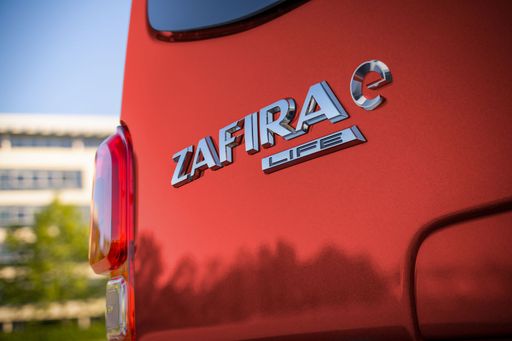 @ Stellantis
@ Stellantis
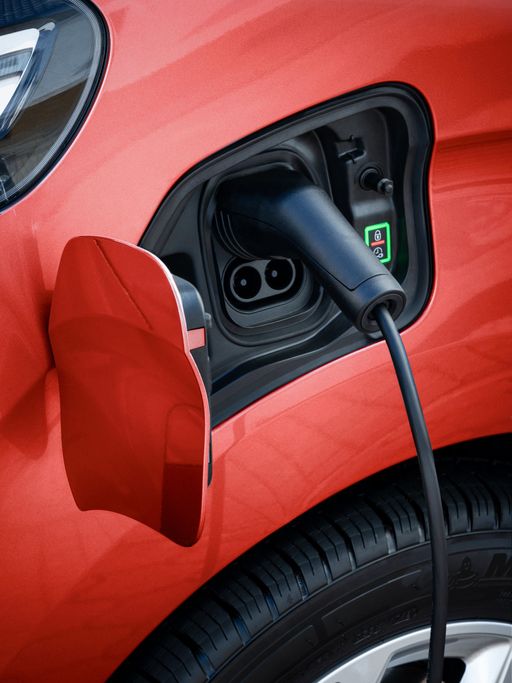 @ Stellantis
@ Stellantis

|

|
|
|
|
Costs and Consumption |
|
|---|---|
|
Price
23100 - 41600 £
|
Price
34200 - 53200 £
|
|
Consumption L/100km
4.5 - 6.9 L
|
Consumption L/100km
7.50 L
|
|
Consumption kWh/100km
14.6 - 16.8 kWh
|
Consumption kWh/100km
24.6 - 24.9 kWh
|
|
Electric Range
377 - 514 km
|
Electric Range
213 - 347 km
|
|
Battery Capacity
1.3 - 65.4 kWh
|
Battery Capacity
-
|
|
co2
0 - 157 g/km
|
co2
0 - 196 g/km
|
|
Fuel tank capacity
38 - 47 L
|
Fuel tank capacity
70 L
|
Dimensions and Body |
|
|---|---|
|
Body Type
SUV
|
Body Type
Bus
|
|
Seats
5
|
Seats
8
|
|
Doors
5
|
Doors
5
|
|
Curb weight
1370 - 1773 kg
|
Curb weight
1952 - 2165 kg
|
|
Trunk capacity
466 L
|
Trunk capacity
0 L
|
|
Length
4350 - 4385 mm
|
Length
4981 - 5331 mm
|
|
Width
1825 mm
|
Width
2010 mm
|
|
Height
1580 - 1585 mm
|
Height
1890 mm
|
|
Payload
420 - 490 kg
|
Payload
877 - 989 kg
|
Engine and Performance |
|
|---|---|
|
Engine Type
Petrol, Full Hybrid, Electric
|
Engine Type
Electric, Diesel
|
|
Transmission
Manuel, Automatic
|
Transmission
Automatic
|
|
Transmission Detail
Manual Gearbox, Dual-Clutch Automatic
|
Transmission Detail
Automatic Gearbox
|
|
Drive Type
Front-Wheel Drive, All-Wheel Drive
|
Drive Type
Front-Wheel Drive
|
|
Power HP
100 - 218 HP
|
Power HP
136 - 177 HP
|
|
Acceleration 0-100km/h
7.8 - 13.3 s
|
Acceleration 0-100km/h
10.6 - 14.3 s
|
|
Max Speed
162 - 208 km/h
|
Max Speed
130 - 185 km/h
|
|
Torque
200 - 265 Nm
|
Torque
260 - 400 Nm
|
|
Number of Cylinders
3 - 4
|
Number of Cylinders
4
|
|
Power kW
74 - 160 kW
|
Power kW
100 - 130 kW
|
|
Engine capacity
998 - 1598 cm3
|
Engine capacity
1997 cm3
|
General |
|
|---|---|
|
Model Year
2024
|
Model Year
2024 - 2025
|
|
CO2 Efficiency Class
D, C, E, F, A
|
CO2 Efficiency Class
A, G
|
|
Brand
Hyundai
|
Brand
Vauxhall
|
Hyundai Kona
The Hyundai Kona: A Comprehensive Overview
The Hyundai Kona has established itself as a standout in the compact SUV segment, blending innovation with performance and style. As the automotive world moves towards more sustainable and efficient options, the Kona offers a variety of powertrains, from traditional petrol engines to full hybrids and all-electric models.
Powertrain Options and Performance
The Hyundai Kona's powertrain choices cater to a wide range of preferences. For petrol enthusiasts, the Kona offers a 1.0L T-GDI engine, delivering 100 PS, and a more robust 1.6L T-GDI variant with up to 170 PS. Those looking for efficiency without sacrificing power can consider the full hybrid model, offering 129 PS and an impressive consumption of 4.5 L/100km.
For a greener option, the all-electric Kona provides a compelling case. With battery capacities of up to 65.4 kWh, the electric Kona offers power outputs of 156 to 218 PS, and efficiencies as low as 14.6 kWh/100km, enabling an electric range of up to 513 km.
Technical Specifications and Innovations
Built on a robust platform, the Kona delivers versatility and reliability. With a choice between manual or dual-clutch automatic gearboxes, along with options for front-wheel or all-wheel drive, the Kona ensures a tailored driving experience. The handling is enhanced by the car's lightweight construction, balancing a 1370 to 1773 kg curb weight with dynamic performance.
The Kona's design doesn't compromise cargo space for style; it offers a generous 466 L boot capacity. With a relatively compact body, measuring 4350 to 4385 mm in length, the Kona easily navigates urban environments while still commanding a strong road presence with its 1825 mm width.
Efficiency and Eco-Friendliness
Hyundai is committed to reducing emissions, as evidenced by the Kona's CO2 efficiency ratings, which range from class A for electric models to class D for some higher-performance petrol variants. The focus on reducing environmental impact without sacrificing driving pleasure is notable throughout the Kona range.
Costing and Value
The Hyundai Kona offers commendable value for money. Pricing starts at €26,400 and reaches up to €50,690, depending on the chosen configuration. The monthly running costs range from €956 to €1090, with a cost per kilometre of 38.3 to 43.6 cents, making it a competitive option in its class.
Conclusion: Modern, Efficient, and Versatile
The Hyundai Kona stands as a testament to Hyundai's commitment to innovation, efficiency, and practicality. Whether you are inclined towards a traditional combustion engine, a hybrid for a balance of power and efficiency, or a full electric model for maximum eco-friendliness, the Kona provides a tailored solution for each unique driver preference.
Vauxhall Zafira Life
An Introduction to the Opel Zafira Life
The Opel Zafira Life is a beacon of innovation and practicality within the electric vehicle segment. Combining space, efficiency, and modern technology, it stands out as a formidable choice for families and businesses alike. This detailed overview delves into the technical prowess and innovative features that make the Zafira Life a leading player in its category.
Technical Specifications
At the heart of the Opel Zafira Life lies an electric motor delivering a robust 136 PS (100 kW) of power. This ensures seamless performance across various driving conditions. With a torque of 260 Nm, the vehicle ensures a smooth and controlled drive, ideal for both urban and highway settings.
Powering the Zafira Life are two battery options—a 50 kWh battery and a larger 75 kWh variant. Depending on your choice, the driving range extends from 213 km to an impressive 347 km, allowing flexibility to meet diverse travel needs. Environmental sustainability is underscored with a zero CO2 emission rating, epitomising its eco-friendly credentials.
Innovative Design and Features
The Zafira Life encapsulates modernity with its dynamic exterior design, accentuated by sleek lines and a robust build. Emphasizing versatility, it is available with up to eight seats, making it perfect for large families or group travels. Each seating row is crafted for comfort, ensuring every passenger experiences a premium ride.
From a technological perspective, the Zafira Life is equipped with state-of-the-art features including an intuitive infotainment system, advanced driver assistance technologies, and connectivity options designed to enhance every journey.
Performance
Engineered for performance and efficiency, the Opel Zafira Life boasts a top speed of 130 km/h. While acceleration from 0-100 km/h may range between 13.1 to 14.3 seconds, this people-carrier prioritizes a comfortable ride over outright speed, focusing instead on reliability and energy efficiency.
The energy consumption of 24.6 - 24.9 kWh/100 km aligns with the demands of modern drivers seeking sustainability without sacrificing practicality. The combination of automatic transmission and front-wheel drive ensures ease of use and familiarity for drivers of all levels.
Practicality and Comfort
Practicality is a hallmark of the Opel Zafira Life, featuring ample cargo and passenger space without compromising on a compact footprint. The vehicle's dimensions, with a length ranging between 4981 mm and 5331 mm, effortlessly balance internal space and manoeuvrability. Despite its substantial carrying capacity, it maintains a manageable kerb weight of 1952 - 2165 kg.
For different needs and budgets, the Zafira Life is available in various equipment lines, including the Edition and GS variants. With a price range of €47,550 to €62,100, it caters to those looking for accessibility without forgoing luxury and innovation.
Conclusion
The Opel Zafira Life is more than just a vehicle; it’s a statement of sophisticated mobility and technological advancement. By blending efficiency, innovative features, and versatility, it caters to the modern driver's needs with poise and assurance. For those looking to the future of transportation, the Zafira Life represents an exciting and reliable choice that stands to redefine the standards of spacious, electric driving.
Which drive types are available for the Hyundai Kona?
Available as Front-Wheel Drive or All-Wheel Drive.
The prices and data displayed are estimates based on German list prices and may vary by country. This information is not legally binding.
